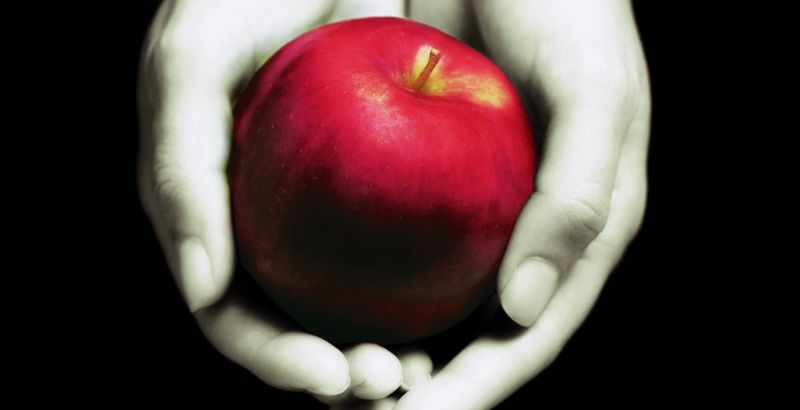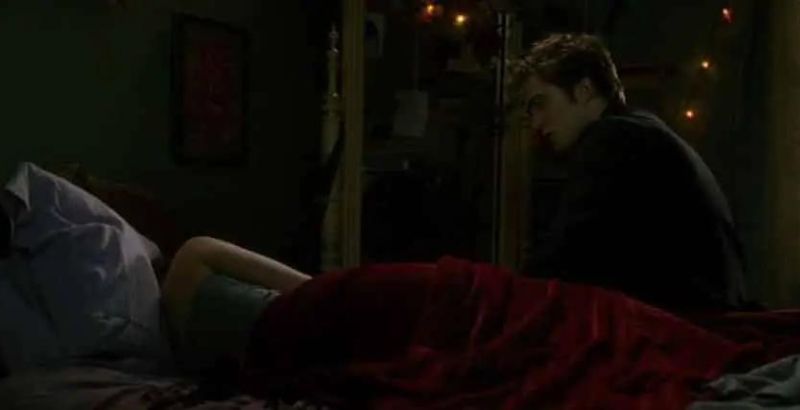
I remember a time when vampires were ever-present in pop culture. For me, it was between the years 2008-2012 and we can largely thank Stephenie Meyer’sTwilight for bringing bloodsuckers back into the mainstream. That said, Vampire culture never really goes away; however, it does come in waves. I, sincerely, thought that Taika Waititi’s What We Do in the Shadows (2014) would bring on another full-blown vampire craze. Alas, it didn’t. It’s 2020 now, and I am starting to see more interest in vampires from the norm with Netflix’s Dracula and Sony’s Morbius are getting a lot of attention. So, I did what any person would naturally do and I reread Twilight as my first read of the year.
I will not lie, I was so in love with Edward Cullen and the woes of Bella Swan when I first read these in middle school. I was about 12 years old when the first film was released. I came from a rather conservative household, and I was not allowed to read those books. Vampire romance was a genre my mother wanted me to avoid. However, I did what any rebellious reader would do and I borrowed it from the library, hidding the book from her. I read all the books as fast as I could to properly take part in the “Team Edward” vs “Team Jacob” discourse. It’s these memories that fueled my reread.
Now, I have to praise Melissa Rosenberg’s faithful screenplay for the adapted film of the same name. Every page I read I could distinctly see in my mind. The first film did a great job of adapting the source material. That was the first thing I noticed. The second thing I noticed was how incredibly simple the writing was. It is no wonder so many teenagers fell head over heels with Edward.
Meyer writes Bella as an ordinary, every day clumsy girl. With no definitive personality traits aside from her physical ineptitude and introversion, making it easy to imprint on Bella Swan. Much of Meyer’s stronger writing comes from her characterization of Edward. He’s stunning, handsome, ethereal, and different. How could anyone resist?
Well, as an adult, me. It’s so easy to see now that I, alongside so many others, fell for a creep.
Edward Cullen watched Bella every night when she slept. After they spend the day together, thy retreat back to Bella’s home. Bella harbors Edward in her room, unknown to her father Charlie. It is this scene where Edward divulges his obsession with Bella. He recalls that the first time he watched her when she slept. It was the day, Mike (a friend of hers) asked her to the dance. Edward was incredibly aggravated over the fact that he couldn’t read her mind. He listened in to every person’s thoughts to see what she would say to them. This is wildly invasive.
Edward is not entitled to knowing every single thought Bella has. Furthermore, it’s incredibly rude to those he uses to get information from. Not to mention, Edward makes a comment about the fact that he knew what he was doing wasn’t moral, right, or ethical but proceeded to anyways. At the time, the flowery writing of a jealous, perfect creature swept me away. I loved the thought of a boy being so jealous, he would listen in to people’s minds to know what I was “thinking”.
Even worse, I wondered when my vampire boyfriend was going to spend each night watching me sleep. The sad part, I wasn’t alone in romanticizing the actions of this abnormal and predatory behavior. In addition to this, he also verbally abused her by undermining her judgment consistently. He muses over Bella being clumsy and inept about her own personal safety. Bella interprets these comments as Edward having her back.

Edward consistently warns her, after they’ve had a good day, that she is silly, wrong, and dumb for not listening to his advice. Every single time they experience something new to their romance, it is meant with Edward making Bella feel anxious and fearful over what he will do next. Bella should not have to cower in fear and walk on pins and needles to appease Edward. Although, she does just that. His warnings are interpreted as romantic gestures for the sake of Bella’s wellbeing. Bella convinces herself that it is her fault. It is her presence and judgment to be in love with him that puts Edward in danger. Her internalization of his consistent undermining, speaks to his strength as an abuser.
He also stalked her and kept tabs of her every moment. The best example of this is when Bella goes to Port Angels to dress shop with some of her friends. Edward invades her privacy by listening in on her friend’s thoughts to make sure he knows where Bella is. Once Edward realizes Bella is not with the girls, he tracks her down and saves her from predators. It seems romantic and victorious that he was able to save her from the bad guys. He is seen to be the hero in this situation. Technically, he is. Those assailants were going to harm her. However, this does not excuse Edwards’s obsessive and controlling behavior he exhibits in this instance. It is not normal to have a man, who you’ve barely talked to, follow you out of town in hopes that he can keep track of you. It’s not rational for him to wait around for you to get into danger to justify his stalking. That’s what this scene does. With Edward being the savior, his actions are justified. If he wasn’t able to save her, readers everywhere would understand the frightening and threatening nature of Edward’s behavior towards Bella.
Now, I know that I am not adding anything new to the discourse surrounding how abusive Edward is to Bella. Although, as an adult, I can now see it quite clearly. It forcefully makes me take off my rose-colored glasses.
Reading Twilight now, I realized that I don’t think it was deserving of being as big as it was. The writing is weak and normalizes abuse. Ultimately, rereading opened my eyes to understanding that pop culture fads come and go. Sometimes, they shouldn’t be revisited and should be left in your memory. Sometimes, it’s good to take off those rose-colored glasses. It signifies your growth, both as a reader and as a human.
With Dracula readily available for binge-watching and Morbius on its way, I pray and hope 2020 will bring vampires back into pop culture in a big way without the normalized abuse Twilight convinced an entire generation of.






